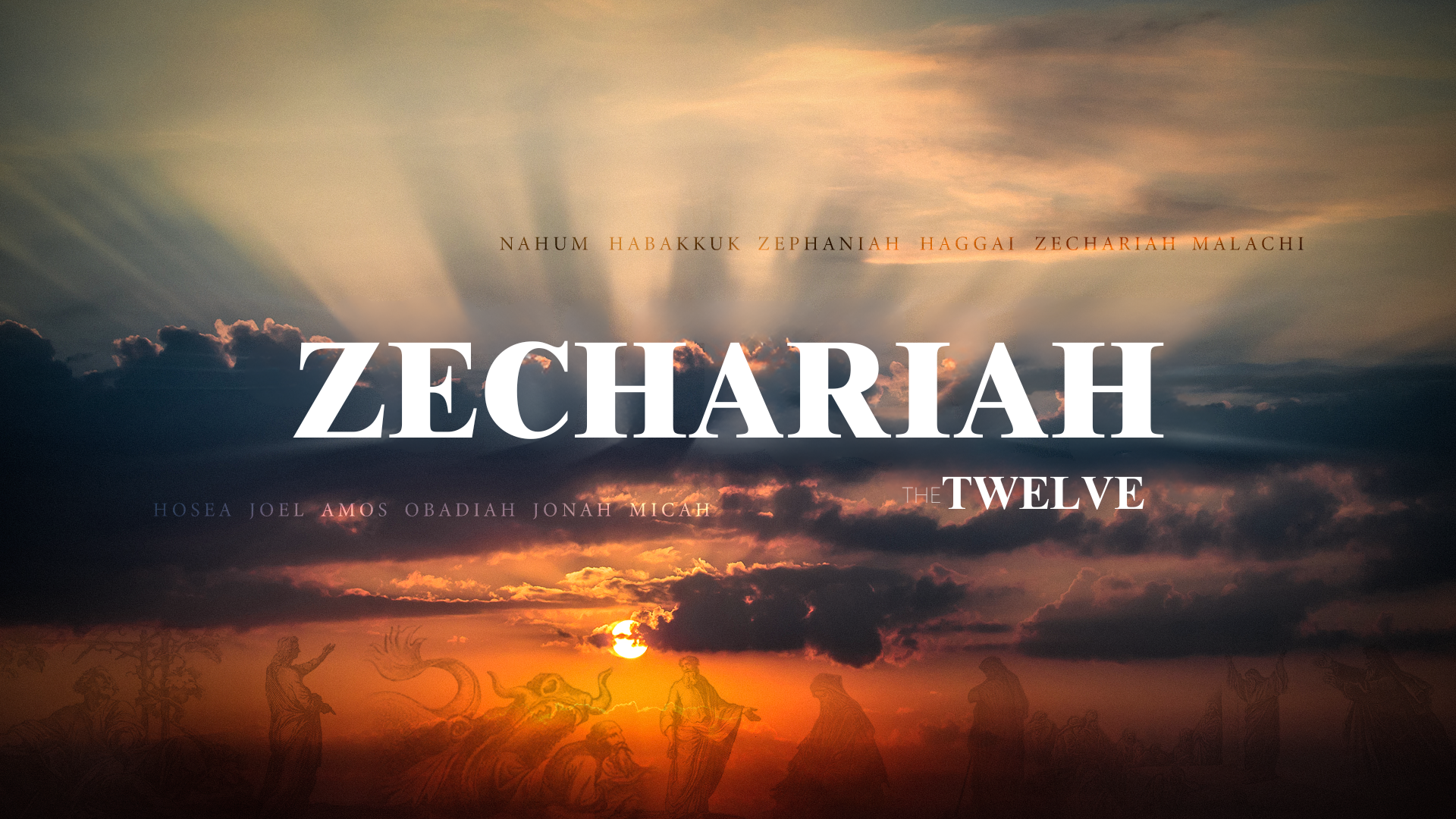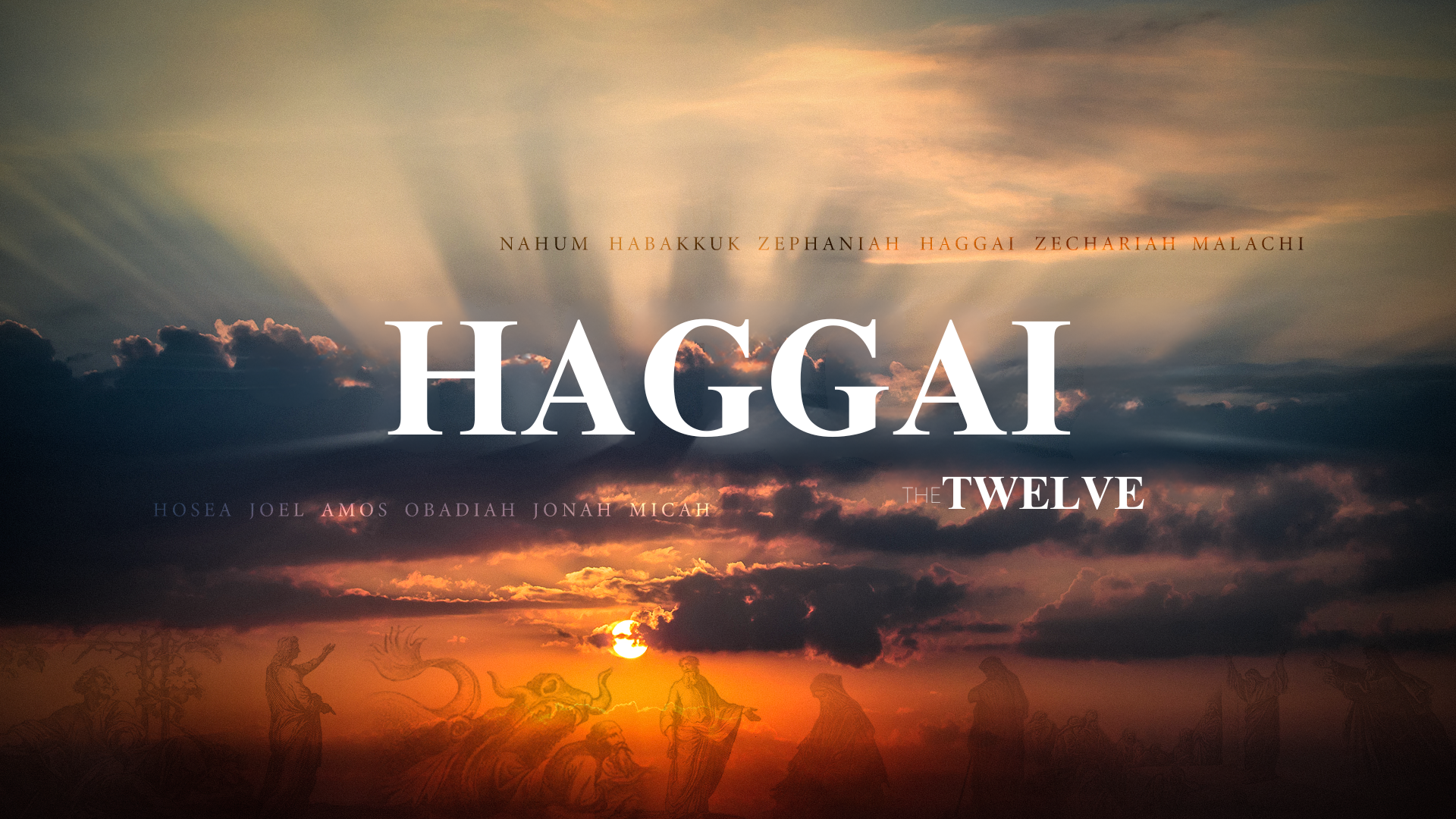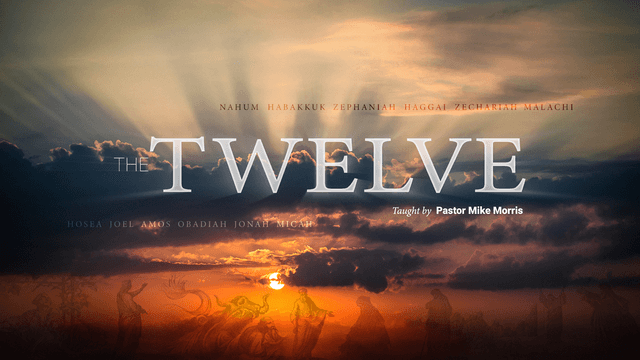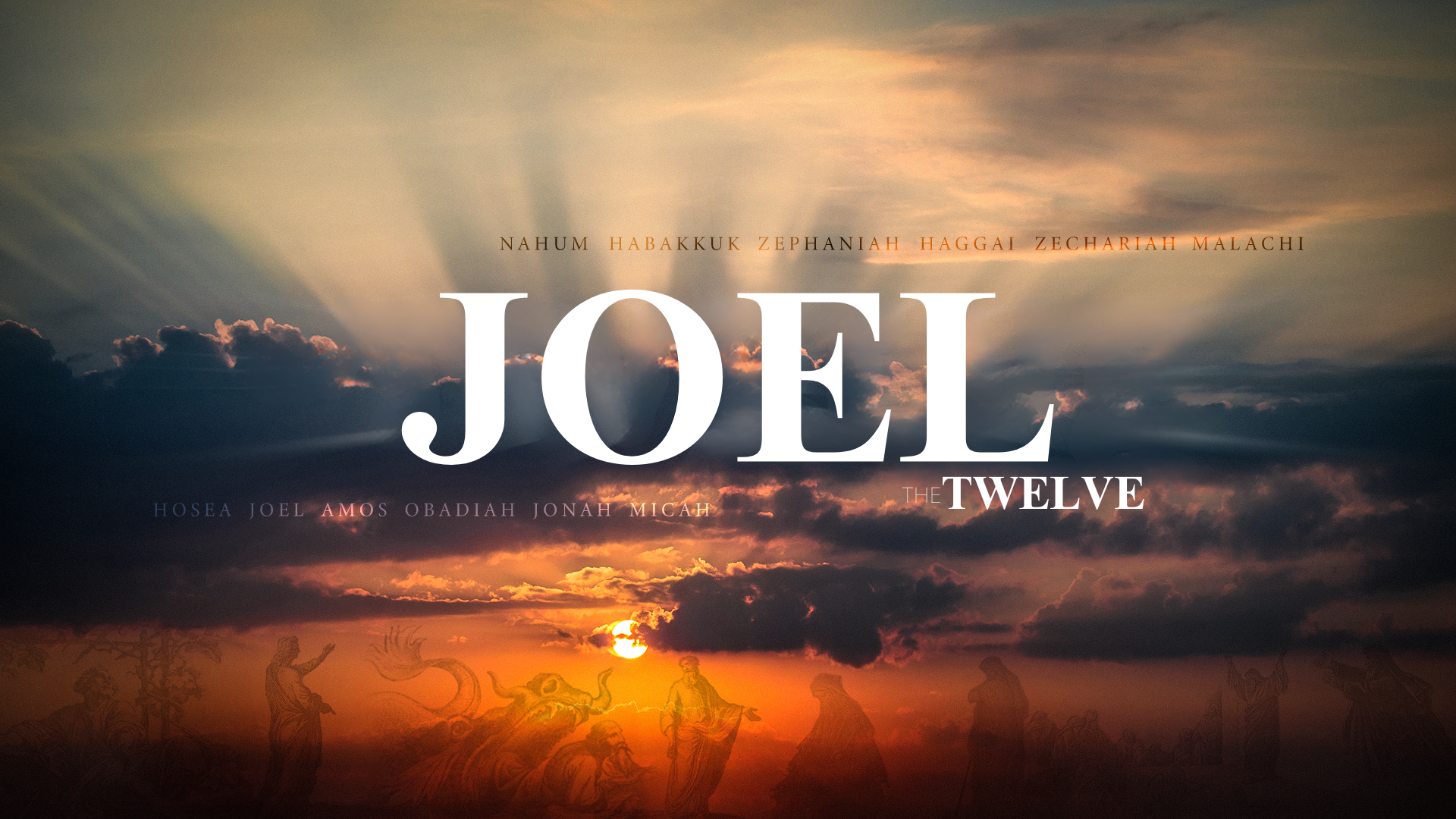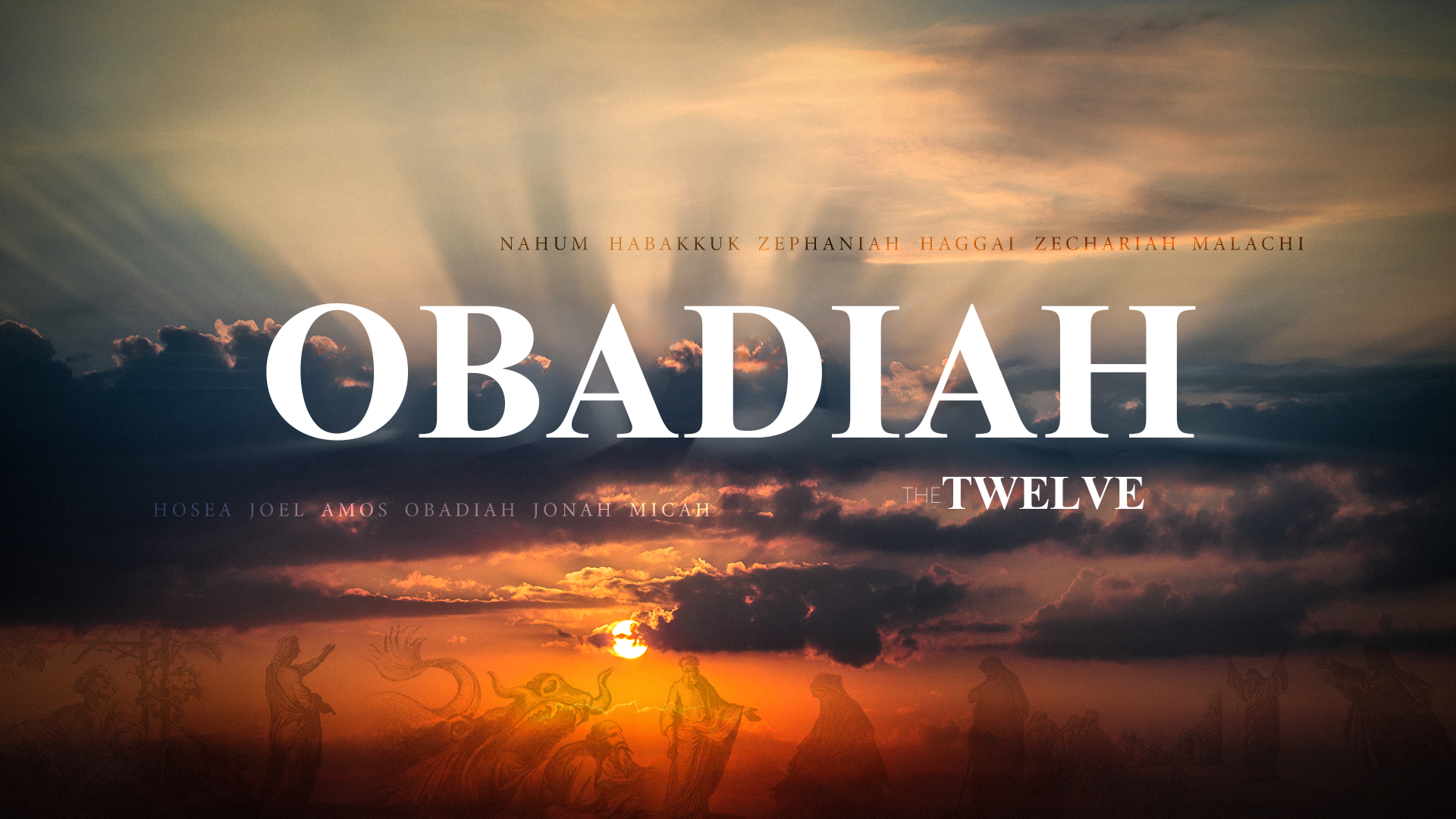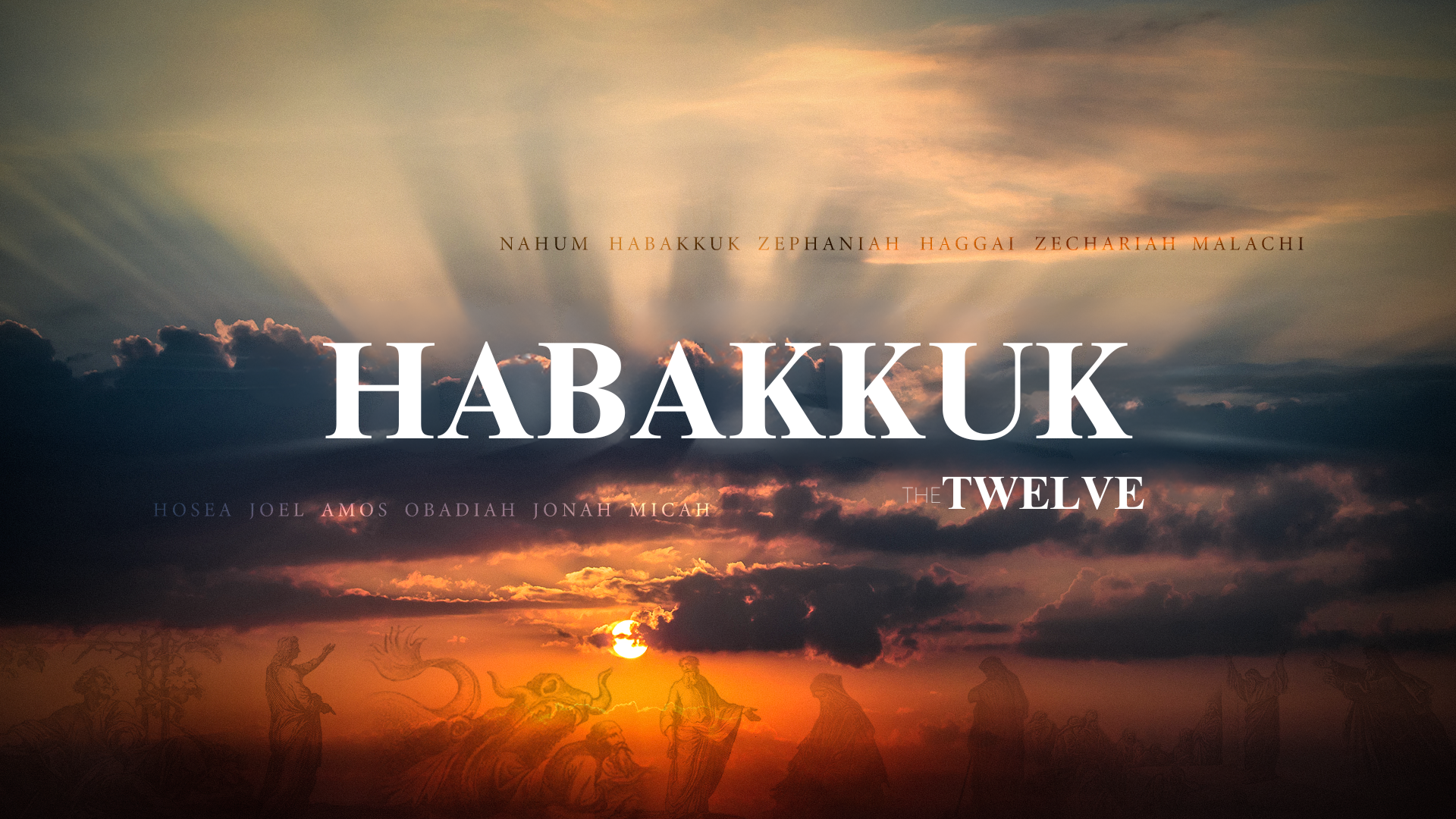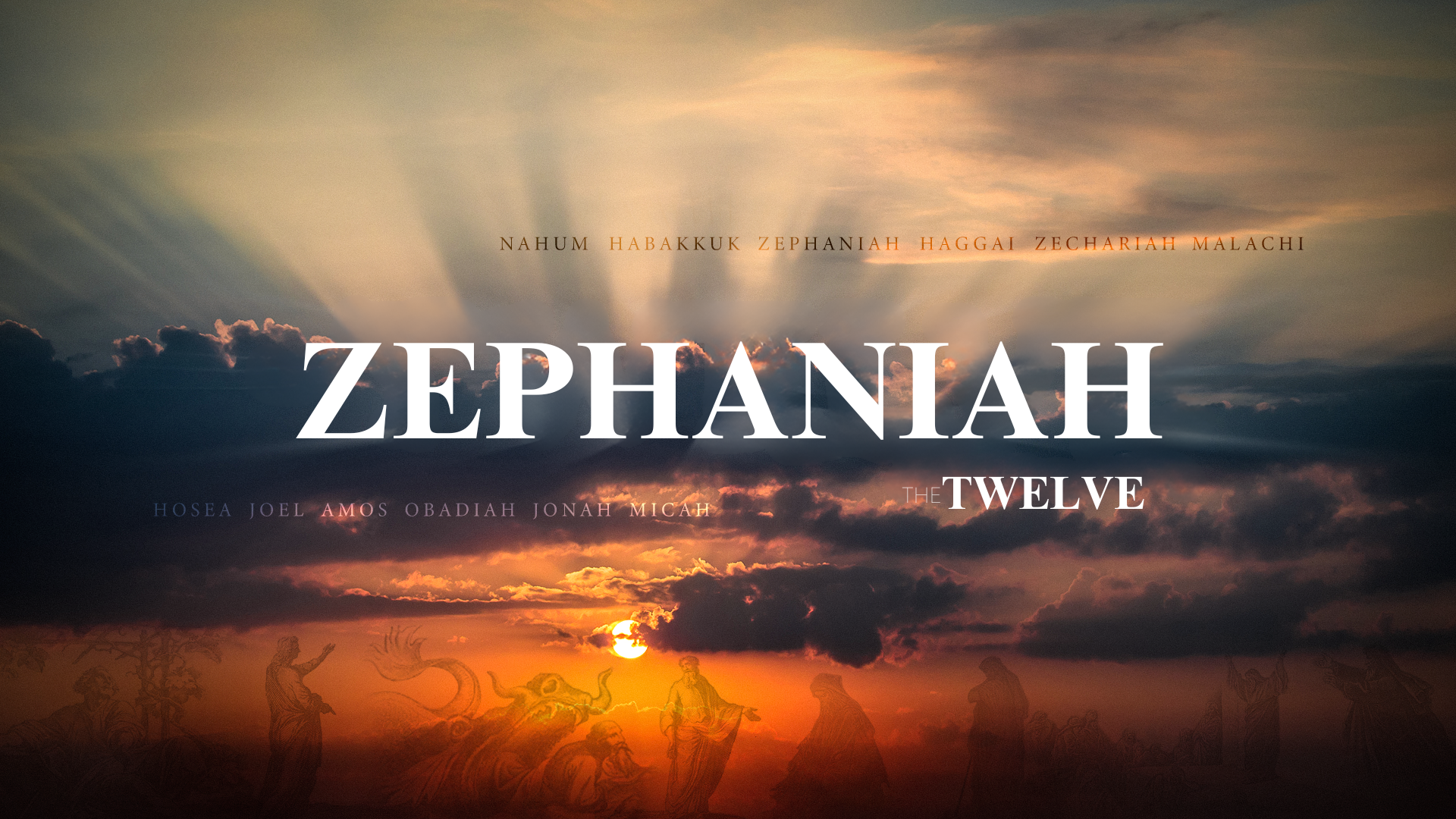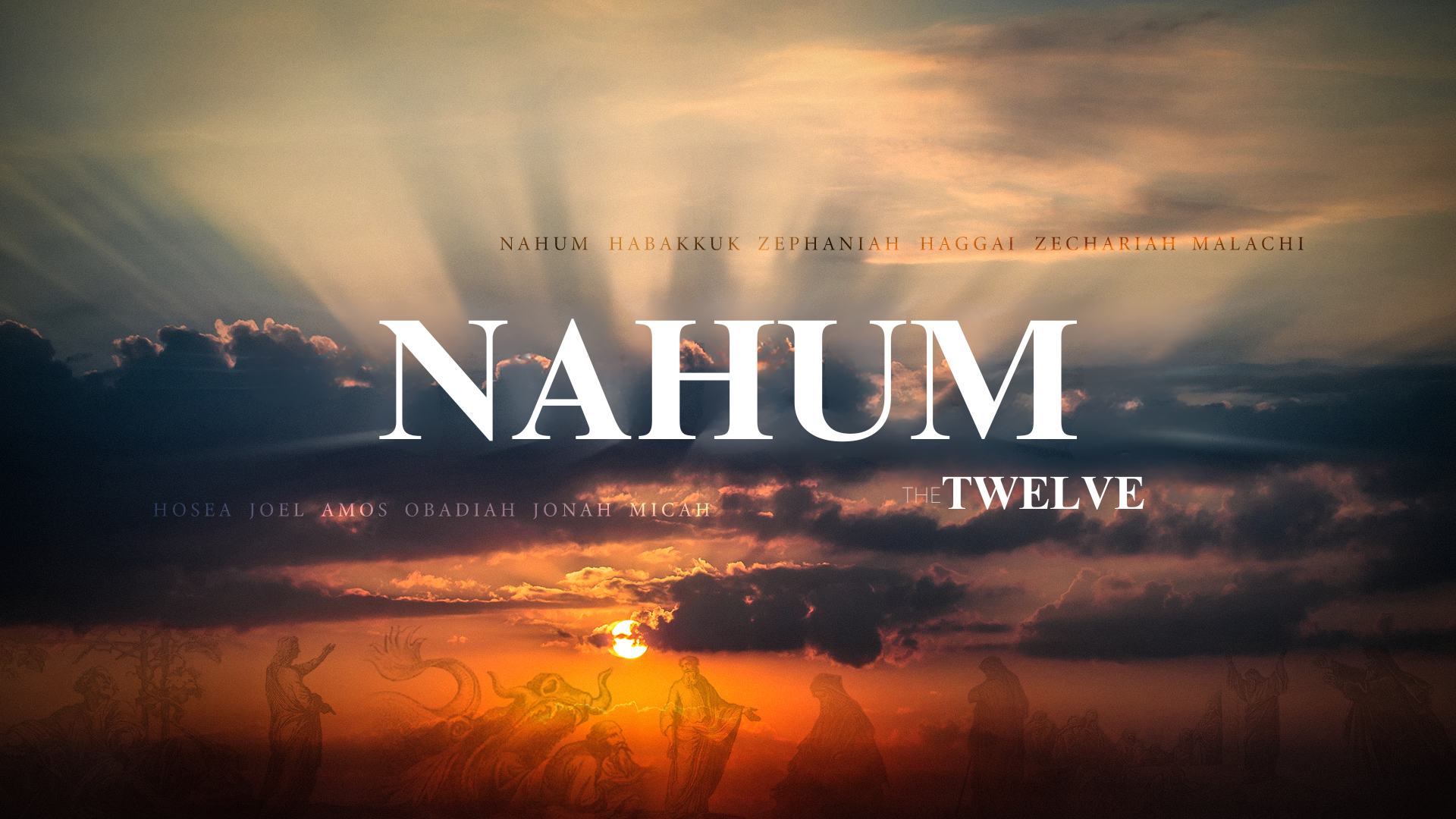INFO
MINISTRIES
TEACHINGS
CONNECT
Sunday Service 9am & 11am
Wednesday Service 7pm
(210) 920-6502
551 E Nakoma St.
San Antonio, TX 78216
MANUSCRIPT
Welcome back as we continue our study of The Twelve...
Today we continue our third book in the series “The Twelve”, the book of Hosea...
We recall Hosea’s story...a completely unique book in the Bible...the story of a prophet commanded by the Lord to marry a prostitute as a living picture of Israel’s unfaithfulness
Last time, we looked carefully at the text from the end of chapter one through chapter three...in this important passage, the speaker changes from Hosea to God and back again, and we see the sudden shift from the bleak judgment in chapter one to the promise of redemption in chapters two and three, both of the nation of Israel and of Gomer, the wife and mother in the story...last time reminds us that even in judgment, there is still hope of redemption...also, please remember that this is rated MA -- for mature audiences only...
This morning, we’ll return to the theme of judgment as God speaks to the nation of Israel and raises a controversy with them...this is very similar to the covenant lawsuit structure that we saw in the book of Amos...we’ll pick up the text at Hosea chapter four verse one...
Hear the word of the Lord, O children of Israel,
for the Lord has a controversy with the inhabitants of the land.
There is no faithfulness or steadfast love,
and no knowledge of God in the land;
2 there is swearing, lying, murder, stealing, and committing adultery;
they break all bounds, and bloodshed follows bloodshed.
This is something of an overview as Hosea turns back to the prophetic formula -- “hear the word of the Lord” -- “Controversy” renders Hebrew ‘rib’ -- a comprehensive term for any proceeding in a court of law whereby an individual seeks a legal remedy...it’s also used in Jeremiah 25.31” “...the Lord has an indictment against the nations...”
What is the Lord’s complaint about the people of Israel? Two things...
The first is what the people have not done...similar to the parable of the barren fig tree in Luke 13, the Lord rightly expected fruit from Israel, but there was none...the Lord declares that there is no faithfulness nor steadfast love nor knowledge of God in the land...this is the first of the many threefold accusations against the nation that we will find in chapters 4 and 5...the number echoes the number of the children of Hosea and Gomer...
The people had not been faithful to the Lord or His covenant commands...they had made pledges of loyalty to their sovereign king as they entered the land, but they had not kept those promises...they were truly “faithless Israel” as they were named in Jeremiah 3...they were not people of integrity and truthfulness, but had forsaken faithfulness in their lives
And there was no steadfast love...this is the Hebrew word ‘he-sed,’ often translated “covenant love”... the sense of it is persistent loving-kindness, unfailing goodness...it’s the word Scripture uses to describe God’s love toward Israel...the Lord expects that same love in return, but the people do not return His love...and the nation was lacking not just in covenant love to Yahweh God, but also toward each other, as we have seen abundantly demonstrated in both Amos and Hosea
And lastly, there is “no knowledge of God” in the land...synonyms are discernment and understanding...the Lord says of the people, “you don’t know Me...” -- we would immediately think back to chapter two when the Lord says of Israel, “she did not know that it was I who blessed her with the grain and the wine and the oil...”; they had taken on the covenant relationship, but they did not know the true nature and character and heart of their sovereign God...
But there’s more...for not only have the people failed to fulfill the terms of the covenant with their king, but they have fallen into great sin and disobedience
2 there is swearing, lying, murder, stealing, and committing adultery;
they break all bounds, and bloodshed follows bloodshed.
The Lord calls out Israel for their violations of the Decalogue, the Ten Commandments...they’ve broken all of them, but God specifically mentions five: #3 (taking the name of the Lord in vain), #9 (bearing false witness), #6 (murder), #8 (stealing), and #7 (committing adultery)
Note that all are sins against their fellow Israelites...even taking the name of the Lord God in vain seems to be in the context of false swearing in disputes
Had they personally wronged God? Yes...but God condemns them for their obvious and flagrant sins against each other in violation of His Law
And to make the point of the faithfulness of God as opposed to the faithlessness of Israel, we only have to turn back to chapter two verses 19 and 20... He promised to show to them the very characteristics the Lord failed to find in Israel...steadfast love and faithfulness and knowledge of Himself...
19 And I will betroth you to me forever. I will betroth you to me in righteousness and in justice, in steadfast love and in mercy. 20 I will betroth you to me in faithfulness. And you shall know the Lord.
While the Lord promises eventual redemption and restoration, now as the prophet speaks, the word of the Lord is controversy and accusation...and the outcome is clear in v 3
3 Therefore the land mourns,
and all who dwell in it languish,
and also the beasts of the field
and the birds of the heavens,
and even the fish of the sea are taken away.
Everything -- the land and all its inhabitants -- suffers under God’s judgment for the sins...the land, the people, even the beasts, birds, and fish...reminds us of the curse on all creation brought about by the sin of Adam and Eve in Genesis 3...
But these circumstances are really the effect, not the cause...what is the cause of the nation’s descent into sin? What happened and who’s really guilty here? Let’s see what the text says...
4 Yet let no one contend,
and let none accuse,
for with you is my contention, O priest.
5 You shall stumble by day;
the prophet also shall stumble with you by night;
and I will destroy your mother.
6 My people are destroyed for lack of knowledge;
because you have rejected knowledge,
I reject you from being a priest to me.
And since you have forgotten the law of your God,
I also will forget your children.
The Lord looks directly to the leaders...the priests and the prophets...and He says that His contention is specifically with them...they would stumble...the Hebrew means to stagger, to walk unsteadily, almost as if drunk...and it didn’t matter whether it was day or night, they were the same: not aware of their own spiritual condition, blind to the spiritual condition of the nation, and oblivious to the impending judgment from their covenant God...
And the consequences are clear -- the people suffer for the sins of the spiritual and religious leaders...God says that the people of Israel are destroyed for lack of knowledge, knowledge that should have come from the priests and prophets, but which the leaders rejected
There’s a question hanging in the text here...how important is leadership within the family of God? Critically important...the leaders within the church must lead well and faithfully if the church is to thrive as the Lord intends...this certainly includes the two roles that the New Testament names -- one known by the terms “overseer” “elder” or “pastor,” and the other known by the term “deacon” -- taken together, these roles are to lead in the preaching and teaching ministry, what one would call overseeing or governance, in pastoral or congregational care responsibilities, and in service to the flock of God...but while those are the offices within the NT church, they do not fully exhaust the idea of leadership...for in every church, there are called and qualified volunteers who serve in positions of great responsibility...we are blessed to have great leaders in many ministry roles and functions, strengthening the work of God within and outside the church...how blessed we are when we all serve as the Spirit has gifted and the Lord purposed to the glory of the Father
But that wasn’t happening in ancient Israel...the priests and prophets were failing in their holy work and the entire nation was suffering because of it...now the accusation of God continues against the leaders of the nation...
7 The more they increased,
the more they sinned against me;
I will change their glory into shame.
8 They feed on the sin of my people;
they are greedy for their iniquity.
9 And it shall be like people, like priest;
I will punish them for their ways
and repay them for their deeds.
Their sin increased day by day...the second phrase in verse 7 is difficult to translate...God will judge the prophets and priests by turning their glory, what should have been their glory, their service to the Most High God, into shame for their sinful behavior...and then He names the issues: first, “they feed on the sin of my people”...the religious leaders benefitted, probably financially, from the idolatry of Israel...perhaps through tithes and offerings of food and drink, or perhaps through money...and second, “they are greedy for their iniquity” ... since the sins of the people benefitted the leaders, they selfishly desired more...
What will happen to the nation of Israel for their sins of idolatry? Verse 10...
10 They shall eat, but not be satisfied;
they shall play the whore, but not multiply,
because they have forsaken the Lord
to cherish 11 whoredom, wine, and new wine,
which take away the understanding.
Here’s the principle, which is reinforced throughout Scripture and in practical terms in everyday life...sin never satisfies...
The devil always overpromises and underdelivers...there may be a pleasure in sin for a season, but in the end, you will be not just disappointed, but ruined...Proverbs 5.11-12 says
at the end of your life you groan,
when your flesh and body are consumed,
12 and you say, “How I hated discipline,
and my heart despised reproof!
Sin leads you to not just the depths of depravity, but also to heights of irrationality as well...in the grip of sin, people make choices and take actions that are difficult to understand or believe...Adam and Eve trusting a serpent more than God...Saul seeking to murder David...David himself falling into adultery and murder...Judas betraying his friend, Jesus...Ananias and Sapphira believing they could lie to God and get away with it...
We look at these biblical examples and wonder how these people could make these choices...sometimes we make similar choices and wonder ourselves how we could fall into sin...the truth is that even as believers, we underestimate the warning of I John 2.16:
16 For all that is in the world—the desires of the flesh and the desires of the eyes and pride of life—is not from the Father but is from the world.
There’s more attraction and desire for the world than we want to think...we can never leave our hearts and minds unguarded or we will fall prey to these powerful temptations...
At the same time, we overestimate our own righteousness and power to withstand temptation...we can fall into sin far too readily and make the same wrong choices as others...it is very easy to fall into the sins of arrogance and pride, believing we can’t or won’t fall the way others have...like Israel’s choice in verse 12...
12 My people inquire of a piece of wood,
and their walking staff gives them oracles.
It’s bad enough to turn a piece of wood into a carved and crafted idol, in some shape or form, but Israel didn’t even go to that trouble...a man would just talk with his wooden walking staff, and together the traveler and the walking staff came to a decision...
How could they do that?
For a spirit of whoredom has led them astray,
and they have left their God to play the whore.
13 They sacrifice on the tops of the mountains
and burn offerings on the hills,
under oak, poplar, and terebinth,
because their shade is good.
The Lord speaks to this idolatrous, sinful tendency over and over in the prophetic books, both in the Twelve and in the better known books of Jeremiah, Isaiah, and Ezekiel...
Ezekiel 6.13-14
13 And you shall know that I am the Lord, when their slain lie among their idols around their altars, on every high hill, on all the mountaintops, under every green tree, and under every leafy oak, wherever they offered pleasing aroma to all their idols. 14 And I will stretch out my hand against them and make the land desolate and waste, in all their dwelling places, from the wilderness to Riblah. Then they will know that I am the Lord.”
The Lord is clear -- He knows their sins, and He will judge them for their sinful idolatry...as He puts it, He will “stretch out His Hand against them...” -- and note what He says here, and He repeats it in several other passages...the outcome of the judgment of their sin will be that “they will know that I am the Lord” -- reminds us of Hosea 2.8 and verse 1 of this chapter that says their lack of knowledge of the Lord is a major part of the problem...Jeremiah 2.5, 7-9 says
“What wrong did your fathers find in me
that they went far from me,
and went after worthlessness, and became worthless?
And I brought you into a plentiful land
to enjoy its fruits and its good things.
But when you came in, you defiled my land
and made my heritage an abomination.
8 The priests did not say, ‘Where is the Lord?’
Those who handle the law did not know me;
the rulers transgressed against me;
the prophets prophesied by Baal
and went after things that do not profit.
A combination of the willful sin of the leaders and the ignorance of the people is what leads the Lord to “contend” with the nation of Israel
Let’s return to the end of chapter four...
Therefore your daughters play the whore,
and your brides commit adultery.
14 I will not punish your daughters when they play the whore,
nor your brides when they commit adultery;
for the men themselves go aside with prostitutes
and sacrifice with cult prostitutes,
and a people without understanding shall come to ruin.
While the religious leaders were certainly guilty, no one was innocent...men and women alike participated in the idol worship of the pagan false gods...
Now Hosea shares a concern he hasn’t voiced before...and it’s one that should have caused great concern in the courts of the king in Samaria...
15 Though you play the whore, O Israel,
let not Judah become guilty.
Enter not into Gilgal,
nor go up to Beth-aven,
and swear not, “As the Lord lives.”
16 Like a stubborn heifer,
Israel is stubborn;
can the Lord now feed them
like a lamb in a broad pasture?
17 Ephraim is joined to idols;
leave him alone.
18 When their drink is gone, they give themselves to whoring;
their rulers dearly love shame.
19 A wind has wrapped them in its wings,
and they shall be ashamed because of their sacrifices.
Hosea sounds as if he’s giving up on Israel and shifting his concern to Judah in hopes they will turn from their sin before judgment falls...the people of Israel are commanded again to forsake the idolatrous worship in Gilgal and Beth-aven (another word-play...Beth-el means “house of God” but Hosea changes the name of the city to “Beth-aven” which means “house of iniquity”)
The answer is the question in verse 16 is “no” -- you don’t treat a stubborn heifer the same way you treat a docile lamb...the stubborn heifer requires a much firmer hand of judgment, which the Lord will provide through the Assyrian Empire...
Now we turn to the fifth chapter with continuation of the same thought...the accusations from the Lord continue for the sins of spiritual adultery...
Hear this, O priests!
Pay attention, O house of Israel!
Give ear, O house of the king!
For the judgment is for you;
for you have been a snare at Mizpah
and a net spread upon Tabor.
2 And the revolters have gone deep into slaughter,
but I will discipline all of them.
Here we see again the focus on the leadership of the nation -- “priests” and “house of the king” -- all the nation was responsible and accountable, as we see from the phrase “O House of Israel” but two of the three specific addresses are pointed directly at the religious and political leaders...they have been traps for the people, a “snare” at Mizpah, a community about ten miles north of Jerusalem, near the border with Judah, and “a net spread” at Tabor, a town further north, near the Sea of Galilee...God promises discipline to the people...why? Because He knows them for who they really are...they are not hidden from Him...
3 I know Ephraim,
and Israel is not hidden from me;
for now, O Ephraim, you have played the whore;
Israel is defiled.
4 Their deeds do not permit them
to return to their God.
For the spirit of whoredom is within them,
and they know not the Lord.
He knows their deeds, He knows the spirit within them...and those deeds are an obstacle, a chasm between them and their God...Isaiah captured it well in Isaiah 59.2
Behold, the Lord's hand is not shortened, that it cannot save,
or his ear dull, that it cannot hear;
2 but your iniquities have made a separation
between you and your God,
and your sins have hidden his face from you
so that he does not hear.
We know sin is wrong, and we know it offends the Lord God...but I wonder if we realize just how much damage sin does to us...OT and NT, persistent and accepted sin, sin we are unwilling to confess and release, drives a wedge between us and the Lord, distancing us from Him and His life...it’s proof that we prefer sin over fellowship with our God...that’s one reason why repentance is so important...let’s continue
5 The pride of Israel testifies to his face;
Israel and Ephraim shall stumble in his guilt;
Judah also shall stumble with them.
6 With their flocks and herds they shall go
to seek the Lord,
but they will not find him;
he has withdrawn from them.
7 They have dealt faithlessly with the Lord;
for they have borne alien children.
Now the new moon shall devour them with their fields.
God will not be found with this faithless nation...He has withdrawn from them...and right behind them is Israel’s sister, Judah...recall the words of Jeremiah 3.6-8...
6 The Lord said to me in the days of King Josiah: “Have you seen what she did, that faithless one, Israel, how she went up on every high hill and under every green tree, and there played the whore? 7 And I thought, ‘After she has done all this she will return to me,’ but she did not return, and her treacherous sister Judah saw it. 8 She saw that for all the adulteries of that faithless one, Israel, I had sent her away with a decree of divorce. Yet her treacherous sister Judah did not fear, but she too went and played the whore.
Israel fell into idolatry first, but Judah followed her...they, too, would be sent into exile by their covenant God...
8 Blow the horn in Gibeah,
the trumpet in Ramah.
Sound the alarm at Beth-aven;
we follow you, O Benjamin!
Hosea sees war coming to Israel, just as Amos did...the imperatives tell the story...”blow the horn” “blow the trumpet” “sound the alarm”
9 Ephraim shall become a desolation
in the day of punishment;
among the tribes of Israel
I make known what is sure.
10 The princes of Judah have become
like those who move the landmark;
upon them I will pour out
my wrath like water.
A curious verse...seems to make little sense, until we remember the statement of God’s law in Deuteronomy against those who move landmarks, which in ancient Israel was a way to simply steal land and flocks...it was forbidden in Deuteronomy 27.17...
“‘Cursed be anyone who moves his neighbor's landmark.’ And all the people shall say, ‘Amen.’
Such sin was cause for the wrath of God against both Israel and Judah...
11 Ephraim is oppressed, crushed in judgment,
because he was determined to go after filth.
12 But I am like a moth to Ephraim,
and like dry rot to the house of Judah.
13 When Ephraim saw his sickness,
and Judah his wound,
then Ephraim went to Assyria,
and sent to the great king.
But he is not able to cure you
or heal your wound.
14 For I will be like a lion to Ephraim,
and like a young lion to the house of Judah.
I, even I, will tear and go away;
I will carry off, and no one shall rescue.
Here we see an important truth in the sin narrative of Israel and Judah...don’t miss it...a significant element in the sin of both nations was their tendency to seek out foreign alliances, often Egypt or Assyria, as protection against aggressors...that’s what is in view here...Ephraim, or Israel, repeatedly turned to other nations for help, but foreign allies could not be trusted...as the Lord says in verse 13, Assyria is not able to cure you or heal your wound...for the Lord’s judgment would be like being mauled by a lion...true of both Israel and Judah, for both were guilty of this sin...trusting in the horses and chariots of others instead of the Lord their God
God completes this judgment oracle with a telling statement...
15 I will return again to my place,
until they acknowledge their guilt and seek my face,
and in their distress earnestly seek me.
Then, as now, God insists on repentance
You might think that repentance is mostly an OT thought, one overtaken in the NT by the grace and mercy of the gospel...that would be incorrect...the word “repent” -- Greek ‘metanoeo’ -- appears 53 times in the NT and is translated exactly the same each time...it means ‘to have a change of self (heart and mind) that abandons former dispositions and results in a new self, new behavior, and regret over former behavior and dispositions’
Metanoeo, “repent”, is the first word uttered in preaching by both John the Baptist and by Jesus, recorded in Mathew 3.2 and 4.17
It is closely linked with faith, belief, and trust...and we often focus on those truths, more...but if we do that, without considering repentance, the abandoning of our former dispositions and behavior, what we are left with is a syncretistic religious disaster, a dirty snowball made up of a toxic mixture of the old self and something of the new self, the flesh and the spirit, the way we were and the way we are...and nowhere in holy writ is that to be the state of a Christ-follower...we are to consider ourselves dead to sin, and the past, and the flesh, and the world...and instead realize that we are called to walk in life, in redemption, in Christ alone...we see it in Romans 8.5-6...
5 For those who live according to the flesh set their minds on the things of the flesh, but those who live according to the Spirit set their minds on the things of the Spirit. 6 For to set the mind on the flesh is death, but to set the mind on the Spirit is life and peace.
Crowder wrote some lyrics in a song that have really reminded me lately of who we truly are...“We’re taking back our freedom, our battle has been won, we have been liberated, back from the dead we’ve come...”
We think our resurrection is still to come...the truth is that we’ve already come back from the dead...we were lost in sin, dead to Christ...now we are dead to the world and alive to our Lord Jesus...turn from sin and death, and turn to Christ in life and freedom...
We have to hear again the words of God in Hosea 5: to “...acknowledge our guilt, seek His face, and in our distress earnestly seek Him.”
This is my plea to you today: acknowledge your guilt as you must, seek the face of our loving Lord, seek Him earnestly, reject the lying temptations of sin, and live out before the Lord the fruits of faithfulness, steadfast love, and the true knowledge of God...may it be so in us, church of the living God...

Taught by Mike Morris
Associate Pastor of Verse By Verse Fellowship
The Twelve Series
